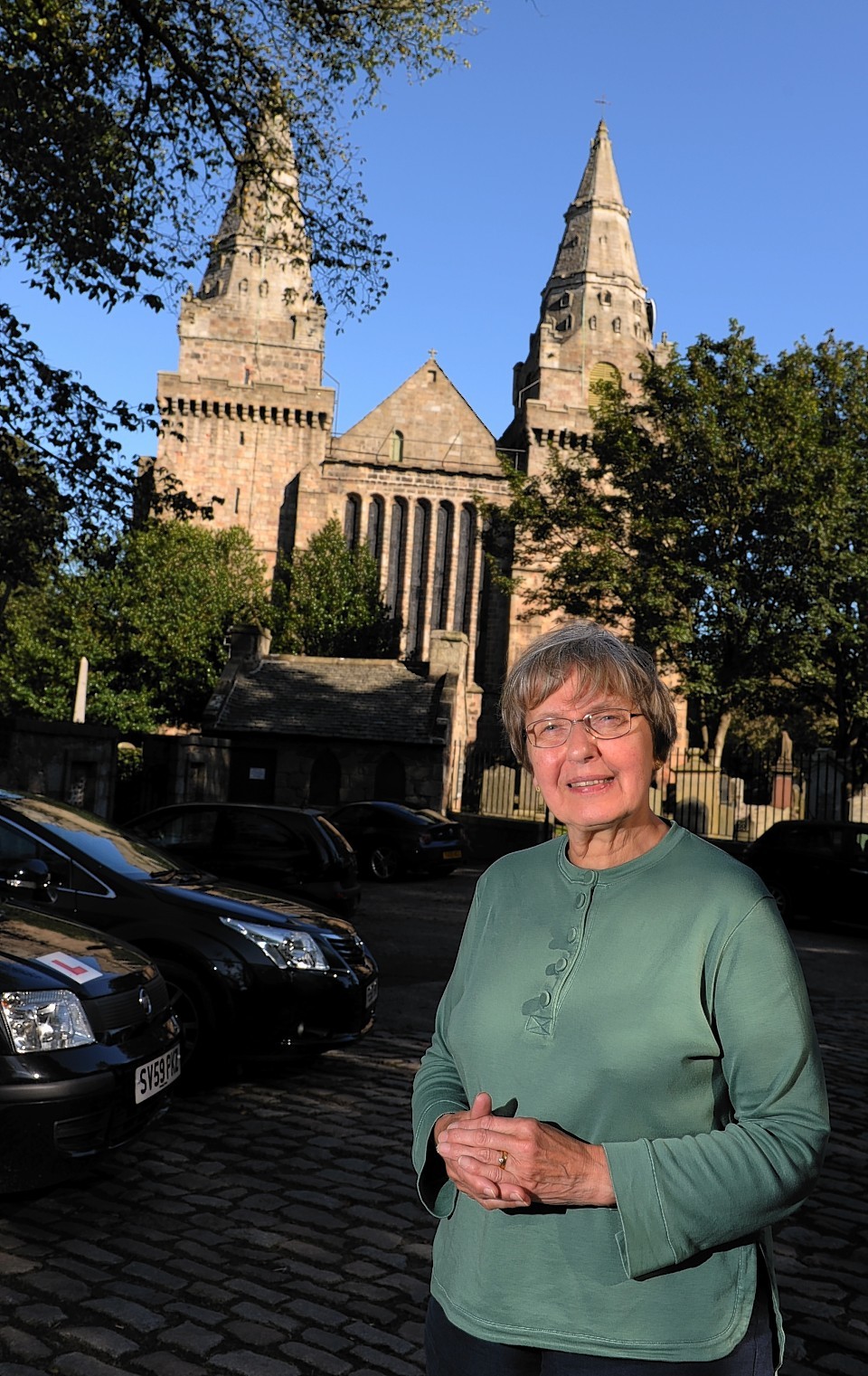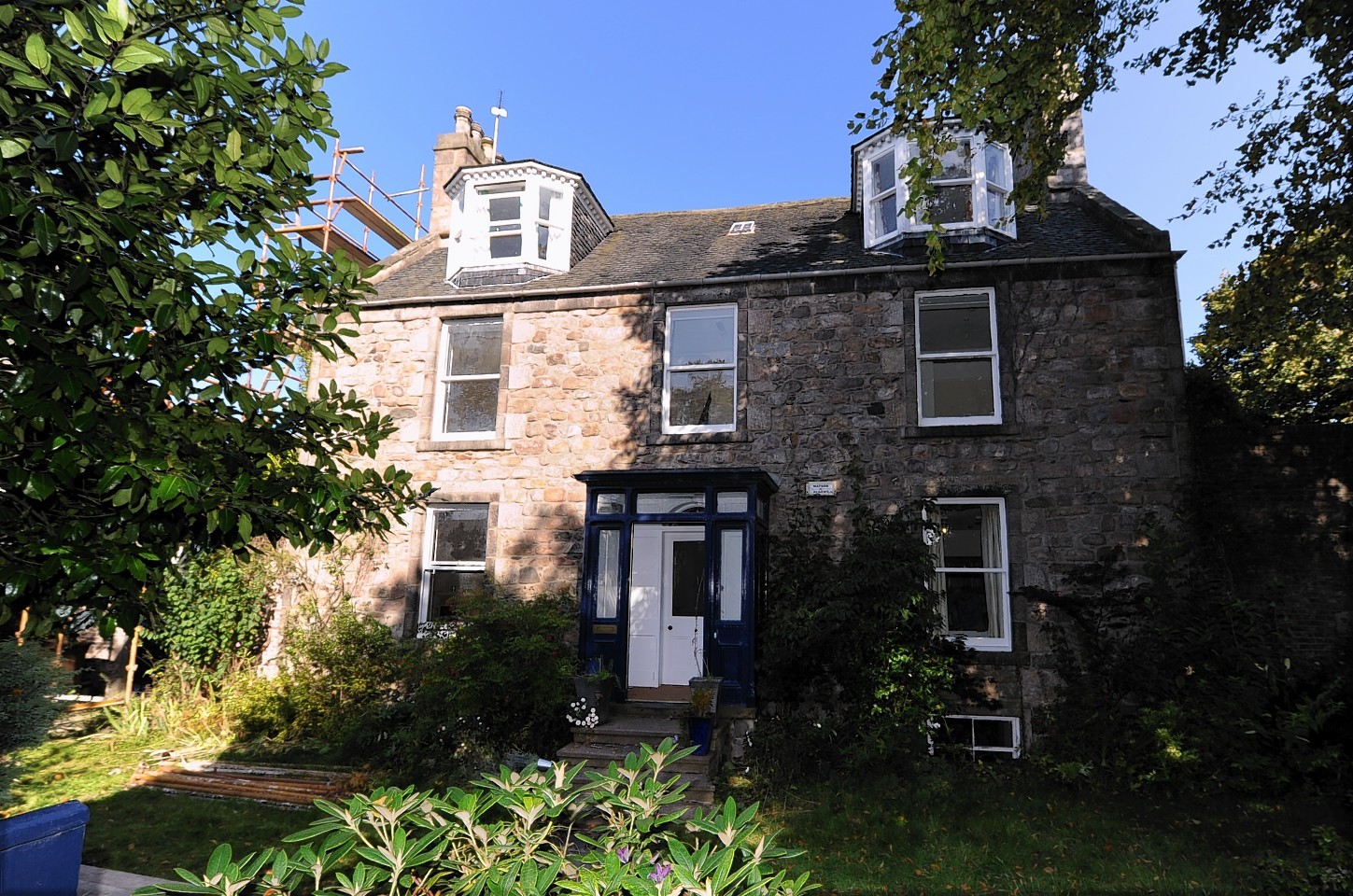The wife of a millionaire Tory donor who was embroiled in the Downing Street “cash for access” scandal has become involved in an unlikely battle over a property in one of Aberdeen’s most historic streets.
Dorothy Angest appeared before city councillors yesterday in a dispute over an HMO (house of multiple occupancy) licence application for student accommodation on the Chanonry, Old Aberdeen.
Conservationists and residents living near the University of Aberdeen’s Kings College campus strongly objected to the plans, claiming it would set a precedent that could ruin the character of the area.
The Chanonry, surrounded by Aberdeen University’s stunning Kings College campus, has been described as one of the “most historically significant” streets in the city and is a magnet for tourists heading to St Machar’s Cathedral.
But the medieval road, protected as a conservation area, has become a modern day battleground for the fight between the wealthy London family and well-heeled local residents.
On one side is Mrs Angest, who along with her husband Henry, was named in a scandal over a series of secret lunches and dinners for Tory supporters held at Number 10 and Chequers .
Mr Angest is the Swiss-born chief executive of Arbuthnot Banking Group, which also owns high cost lending company Everyday Loans.
He is one of the UK Conservative party’s biggest financiers, with reports this year that he has donated as much as £7million.
Mrs Angest owns the property at 2 Chanonry, and applied for an HMO licence to convert it for use as student accommodation for her son, who is studying at Aberdeen, and his friends.
However, the application met opposition from several Chanonry residents, including Rosemary Wolrige-Gordon, who was married to the late Captain Robert Wolrige-Gordon of Hallhead and Esslemont.
Mrs Wolrige-Gordon’s late brother-in-law, Patrick, was a former Conservative MP for East Aberdeenshire.
In a submission to the licensing committee, Mrs Wolrige-Gordon said allowing an HMO in the area would be “a mistake” as students are “notorious for generating a mess, untidy gardens, noise, disruption and a general lack of maintenance”.
The submission adds: “It would not be in keeping for such a special and spectacular area of Aberdeen.”
At a meeting yesterday, Chanonry neighbour Margaret Sleeman, speaking on behalf of several residents, argued approval of the plan could set an unwanted precedent which could ruin the area.
She said: “The survival of a medieval street plan, as we have in the Chanonry and the surrounding streets, and the survival of the pattern of the cathedral canons lands, now occupied by private houses and gardens, makes our community not only locally important, but nationally so.”
Gordon Mutch, vice-chairman of Old Aberdeen Community Council, also spoke against the application.
He said: “Old Aberdeen is approaching a tipping point where property becomes less attractive due to the proximity of HMOs.”
Mr Mutch also said he received a solicitors’ letter asking that the objection be withdrawn.
He added: “Putting pressure on objectors is not a normal occurrence, in our experience, but is indicative of a sophisticated property investor – people don’t appreciate being intimidated.”
Speaking on behalf of Mrs Angest, Deborah Eden, a solicitor from Stronachs, said the five-bedroom property was surrounded by a “high brick wall”, with a garden “not visible” from the street. She suggested the development would cause “minimal disruption” to neighbours.
She pointed out that there had been no HMO licences granted for the Chanonry, so it was difficult to argue “over-provision” in the area.
The application was granted unanimously by the committee after Councillor Gordon Townson moved to accept.
He said the proposal reflected “the high demand for student accommodation in the city”.
Mrs Angest declined to comment when approached by the Press and Journal afterwards.
Mrs Sleeman said afterwards she was “extremely disappointed” with the outcome.
She said: “I emphasised the historic importance of the Chanonry. Aberdeen does not have much to offer tourists, we really have to look after and protect this kind of area.”
Objectors suggested a moratorium similar to that which exists in the centre of St Andrews, which was agreed following complaints in the Fife town about absentee landlords and an apparent loss of community.


